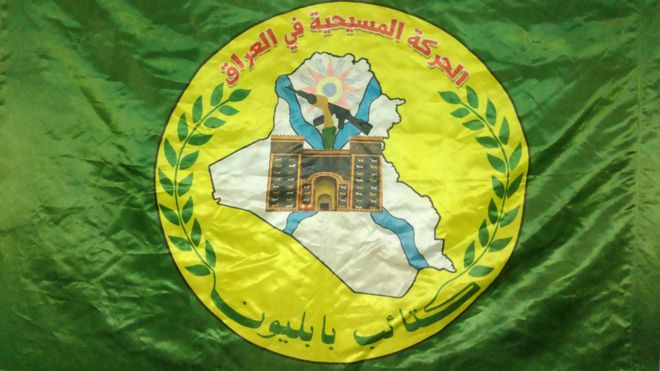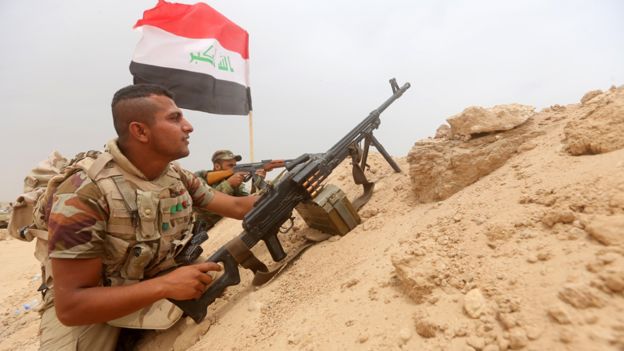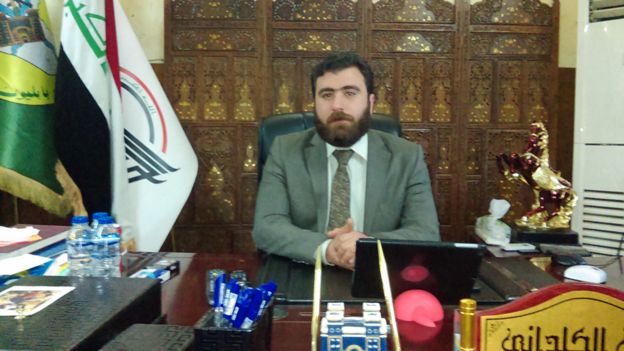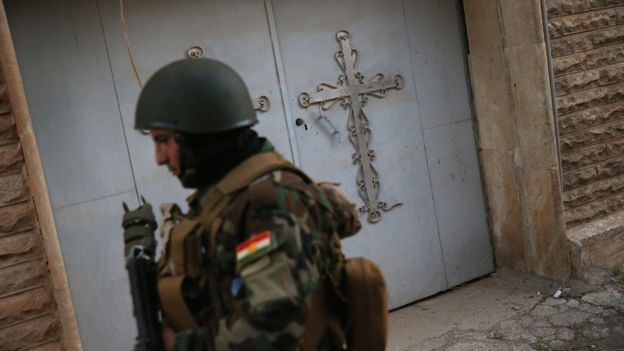Note: There is the same movement in America but who gets that memo?
This website published an item last month on a very closely related movement in Belgium and honestly across Europe, the Shariah4 movement.
In fact this movement is at least 5 years old.
—- [Hot Issue] The Zerkani Network: Belgium’s Most Dangerous Jihadist Group // Terrorism Monitor – The Jamestown Foundation
In recent months, there have been key developments and insights regarding the notable number of Belgians fighting in Syria and Iraq. A recruitment organization whose existence was unearthed during a series of trials turned out to be one of the most active; the direct implication of the so-called Zerkani network in the Brussels and Paris attacks also makes it the most dangerous one. This analysis serves as an update to my May 2015 article in Terrorism Monitor “How Belgium Became a Top Exporter of Jihad,â and points out significant differences with other Belgian jihadist networks, as well as uncovers the nuances of their links with one another (Terrorism Monitor, May 29, 2015).
About a year ago, the neo-Islamist movement Shariah4Belgium was invariably named as the most significant factor behind the tremendous number of Belgian fighters in the Syrian-Iraqi conflict (Terrorism Monitor, May 29, 2015). According to the latest estimates, that figure can be as high as 589 by now. With 80 of the militants clearly linked to Shariah4Belgium, the networkâs importance remains. The Zerkani network comes close, however. Hardly known twelve months ago, the Zerkani network appears to have sent at least 59 people to the jihad in Syria and Iraq (Pieter Van Ostaeyen, April 3). Three of these Zerkani jihadists have played a direct role in Europe’s latest terrorist attacks: Abdelhamid Abaaoud and Chakib Akrouh were perpetrators in Paris, while Najim Laachraoui participated in Brussels and is also suspected of being the bomb maker for both plots (Emmejihad, March 22).
The Zerkani Networkâs Origins
The Zerkani network is named after Khalid Zerkani, a 42-year-old Moroccan who was living in the Brussels municipality of Molenbeek. Before sentencing him to twelve yearsâ imprisonment on July 29 of last year, the judge described him as a “cynical guru.” According to the written judgment of the trial, Zerkani not only indoctrinated very young people up to the point where they were willing to sacrifice themselves, but also encouraged them to commit a slew of petty crimes in order to pay for their journey to death. [1] Though practicing Muslims are not allowed to steal from another, theft among the Zerkani network was whitewashed as taking âghanimaââ the spoils of war. That principle is said to have been introduced into the network by Reda Kriket, a Frenchman living in Belgium who was arrested shortly after the Brussels attacks on suspicion of yet another terrorist plot (Marianne, March 25).
It is not entirely clear whether Zerkani himself has ever been part of the terrorist plots in which his recruits had a role. It is possible that he only aimed at recruiting for a war abroad. The Belgian terrorists responsible for attacking the West after he recruited them may well have been selected and groomed for their deadly European missions behind Zerkani’s back. There are strong indications however, that Zerkani also plotted for that kind of action. As early as 2012, conversations about the need of attacks in the West were overheard by Belgian security services during a meeting in which he took part (Emmejihad, January 26). Moreover, Zerkani did not only recruit for the Syrian jihad; prior, he was linked to at least seven people convicted in Belgium for their cooperation with al-Shabaab, the al-Qaeda-linked terrorist organization based in Somalia. [2]
Zerkaniâs Key Social Ties
Fatima Aberkan, a 55-year-old mother who has sent four of her own sons to the Syrian jihad, was convicted at the same trial as Zerkani. The judge described her as the âpasionaria of the jihad,â highlighting her enormous role in both the indoctrination of recruits and in organizing the logistics of their departure to war. Fatima Aberkan used to be the closest friend of Malika El Aroud, Europe’s most notorious female terror convict to date (Marie Claire, May 15, 2009). It was Aberkan who served as a go-between (with her e-mail address [email protected], to be more precise) for El Aroud and the latter’s second husband, Moez Garsallaoui, after his departure from Belgium in 2007 to become a high ranking member of al-Qaeda in the Afghan-Pakistani border zone. Aberkan was also responsible for providing Nizar Trabelsiâwho was convicted for plotting against the U.S. Air Force base in the Belgian town of Kleine Brogel and later rendered to the U.S.âwith a mobile phone in prison, adding to existing suspicions of a plot to set him free. [3]
Aberkan’s brother Abdelhouaid, was also convicted as a member of Zerkani’s network, notably for his role in the 2001 assassination of the Afghan anti-Taliban commander, Ahmed Shah Massoud. He was responsible for driving El Aroud’s first husband, Dahmane Abd al-Satter, to the airport for the assassination, which was a suicide mission, and was considered to be preparation for the 9/11 attacks in the U.S. (LeMonde, April 19, 2005).
While Abdelhouaid Aberkan was convicted in Belgium for his part in the assassination of Commander Massoud, another person linked to the Zerkani network was tried in France for the same charge. Abderrahmane Ameuroud, 38, was arrested at a tram stop in the Brussels municipality of Schaarbeek on March 25 of this year, and was then shot in the leg. He is suspected of being part of a terrorist plot for which fellow Zerkani network member, Reda Kriket, had amassed an unprecedented amount of arms and explosives (Libération, March 30). According to the French-Algerian journalist Mohamed Sifaoui, Ameuroud is the youngest of three brothers who all have escalated their lawbreaking habits from petty crimes to Islamic terrorism (Twitter, March 26). Abderrahmane’s brother Reda was expulsed by France for radical sermons he held in a Paris mosque, while Abderrahmane is said to be a veteran of al-Qaeda’s training camps and was named a recruiter for the previous Iraqi jihad more than ten years ago (LeParisien, July 29, 2005).
Zerkani Network vs. Shariah4Belgium
Zerkani’s modus operandi could hardly differ more from that of Shariah4Belgium. The latter was notorious for its highly visible actions, such as public demonstrations and preaching sessions in crowded shopping streets. Zerkani’s organization had no website, no logo, and no distinctive name. Recruiting was done under the guise of offering community sporting activities, while further indoctrination happened in old-fashioned backrooms. While Shariah4Belgium’s leader Fouad Belkacem participated in televised debates and disseminated his sermons via YouTube, even the grainiest picture of Zerkani is extremely hard to locate. Zerkani was always sure to use someone elseâs phone while calling abroad, and conversely, he had others in his network carry his phone to avoid being traced and geo-located. According to the court judgment mentioned above, Zerkaniâs wariness supplemented the belief that he was trained in the famous Afghan-Pakistani terrorist camps, âas unconfirmed reports claim.â [4]
While most of the people Shariah4Belgium recruited between 2012 and the first months of 2014 were incorporated in the local militia âMajlis Shura al-Mujahideenâ of the Syrian commander Amr al-Absi, Zerkani’s early recruits landed within the âKatibat al-Muhajireen,â which was led at the time by the ethnic-Chechen commander Tarkhan Batirashvili, better known as Abu Omar al-Shishani. Both groups were based in the outskirts of Aleppo and cooperated with one another, meaning that Belgian fighters of both networks interacted with each other regularly. Soon after the establishment of the so-called Islamic State (IS), al-Absi and al-Shishani pledged allegiance to the IS leader, Abu Bakr al-Baghdadi. But as was the case with the Shariah4Belgium recruits, several Zerkani members instead joined rival Jabhat al-Nusra, also known as al-Qaeda’s branch in Syria. What happened later in terms of individual affiliations is difficult to ascertain, though it appears most of the Zerkani recruits finally joined the Islamic Stateâsimilar to the many Shariah4Belgium members who had joined IS before them.
A remarkable characteristic of the Antwerp-based and mainly Dutch-speaking Shariah4Belgium is that it ostensibly lacked any link with older networks of the Belgian jihad. Apart from a few links with the remnants of the âGroupe Islamique Combattant Marocainâ (GICM), Shariah4Belgium does not seem rooted in Belgium’s extremist past (Emmejihad, June 7, 2014). This could not be more different from the Zerkani network, which operates almost exclusively in French-speaking circles in Brussels.
Although Shariah4Belgium and the Zerkani network have their dissimilarities, they are connected to a certain degree. The recent arrest of Shariah4Belgium convict Bilal El Makhoukhi, 27, in connection to the Brussels attacks, may have resulted from members of both networks having met each other at the Syrian front (De Redactie, April 9) as well as in Belgium. The man at the intersection of the two groups is Jean-Louis Denis, 41. He ran his own recruitment cell for the Syrian jihad, posing as a benefactor distributing food to the homeless near the Brussels âGare du Nordâ railway station. Denis was sentenced to ten years in jail in January 2016 for these charges (Le Soir, January 29). According to the outcome of this trial, he not only publicly declared himself to be the leader of the Brussels chapter of Shariah4Belgium, but even claimed to be in the running to replace its overall leader, Fouad Belkacem, after Belkacemâs arrest in June 2012. [5]
Denis was particularly successful as a recruiter, attracting people who wanted to join the jihad from as far as Martinique. However, he lacked the necessary contacts to get his recruits across Syrian borders. Therefore, he often relied on the social network structures that Zerkani had built. Based upon evidence presented at his trial, it was Denisâs lieutenant, Mohamed Khemir, 37, who served as most important go-between. At least once, Khemir accompanied Zerkani when he brought a young French recruit to the Brussels airport to travel to Syria. Zerkani, Khemir, and Denis were often present at the same meetings, and little by little, both groups almost seemed to merge. In the end, Denisâs entourage looked more like a chapter of Zerkani’s network than as a part of Shariah4Belgium, but left behind a significant number of jihadists who were influenced by both. [6]
Conclusion
Hardly known a year ago, Belgium’s Zerkani network has now been revealed to be the country’s most dangerous jihadist group. Led by the enigmatic Moroccan, Khalid Zerkani, it has sent at least 59 recruits to Syria and Iraq. Most of them have ended up within the terrorist group Islamic State, and at least three have returned to Western Europe to commit the deadly Paris and Brussels terrorist attacks. The modus operandi of the network differs greatly from that of Shariah4Belgium, the more renowned and equally as significant group fueling the high number of Belgian jihadists, though connections between the groupsâboth in Belgium and in the battlefieldâare undoubtedly present.
Guy Van Vlierden is a journalist for the Belgian newspaper Het Laatste Nieuws, specializing in issues relating to terrorist and extremism.
Notes:
[1] Judgment of the ‘Tribunal de Première Instance Francophone de Bruxelles’ issued on July 29, 2015 – in the possession of the author.
[2] Mentioned in the judgment of July 29, 2015 – cfr. Supra
[3] Mentioned in Italian court papers in the possession of the author; Mentioned in the judgment of July 29, 2015 – cfr. Supra.
[4] Mentioned in the judgment of July 29, 2015 – cfr. Supra.
[5] Judgment of the Tribunal de Premi̬re Instance Francophone de Bruxelles issued at January 29, 2016 Рin the possession of the author.
[6] All details mentioned in the judgment of January 29, 2016 – cfr. Supra.




